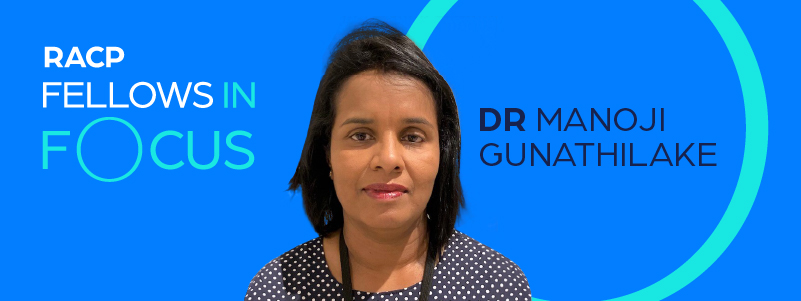RACP Fellows in Focus: Dr Manoji Gunathilake
Date published:
13 Sep 2021

“I would say that the reason I became a specialist was to gain more experience in a field of medicine that posed a lot of questions to me. While I was doing my junior doctor training, I found myself drawn to the kind of areas where there were serious gaps in knowledge.”
Dr Manoji Gunathilake, who is Sri Lanka-born, currently works as the Section Head and specialist sexual health physician at the Sexual Health and Blood Borne Virus Unit of the Centre for Disease Control, Top End Health Service of Northern Territory Department of Health. Manoji completed her undergraduate and postgraduate qualifications in Sri Lanka and United Kingdom and has been working in Australia in the field of sexual health medicine since 2012. Apart from being a Fellow of the RACP, Manoji is also an executive committee member of the RACP’s Australasian Chapter of Sexual Health Medicine.
“How did I end up in the field I’m in? Well, I came across a few patients with sexually transmitted infections who were quite marginalised in society, and I was quite naive to those situations at that time. I started exploring support pathways and services available to them. Eventually, I decided to join the specialist training pathway in sexual health medicine. This was not an area considered a common or popular specialty in many countries.”
“Sexual health is a very important part of human lives, but mostly not spoken about. Sexually Transmitted Infections (STIs) cause a huge burden to the economy. Nationally and internationally, STIs are a huge challenge. I get the opportunity not only to diagnose and treat but also to make positive changes in clients' lives and prevent diseases.”
“Almost every consult requires risk assessment. That is, talking to patients about their behaviour and the context, exploring their sexual identity and practices, providing care and support in a non-judgmental way and to empower them. It also allows us to be advocates for the patients on a day-to-day basis. No one can stop learning about HIV. There are changes in antiretroviral medications quite frequently and you need to challenge yourself to choose the best treatment with the close involvement of the patient in the decision making. It’s a very satisfying activity.”
Manoji mentioned that she wasn’t sure why sexual health wasn’t more popular. She hypothesised that perhaps other fields of medicine may have more opportunities for specialists, but concluded, “For me, I would say it is very satisfying and you get a lot of contentment every day when you're working with patients like ours.”
The pathway to success has been weird and wonderful, and when asked, Manoji shared her insights, “The ability to support patients in a professional manner with an open non-judgmental mindset. Making efforts to minimise perceived stigma and discrimination and contribute to reducing, at least to some extent, the fundamental negativity attached to a diagnosis of a sexually transmitted infection.”
Manoji is extremely proud of the path she has taken and the work she has been involved with. On the subject of ‘legacy’, she observed, “We all are surrounded by challenges caused by diseases, unresolved issues with overburdened health systems and many other challenges, but it does not cost anyone to stop stigmatising and discriminating individuals, just because they have an illness. If every one of us could do that, Australian society (and the world) would be a much nicer place. That’s something I would really like to continue working on and would like everyone else to work hard on as well.”
For those looking to follow in the footsteps of Manoji, she offered some advice, “It is a fascinating and rewarding specialty. You will have an ongoing satisfaction that you are making meaningful differences to your client's lives and their loved ones. However, don’t forget to balance work and life. Make sure you find time for family and be there for your friends in need.”